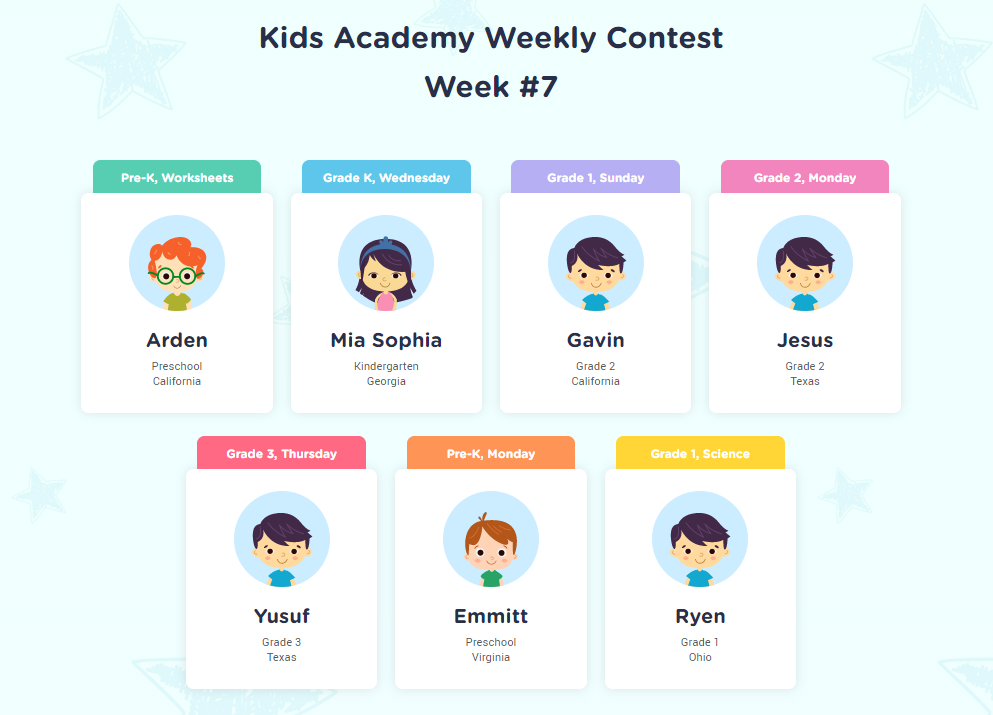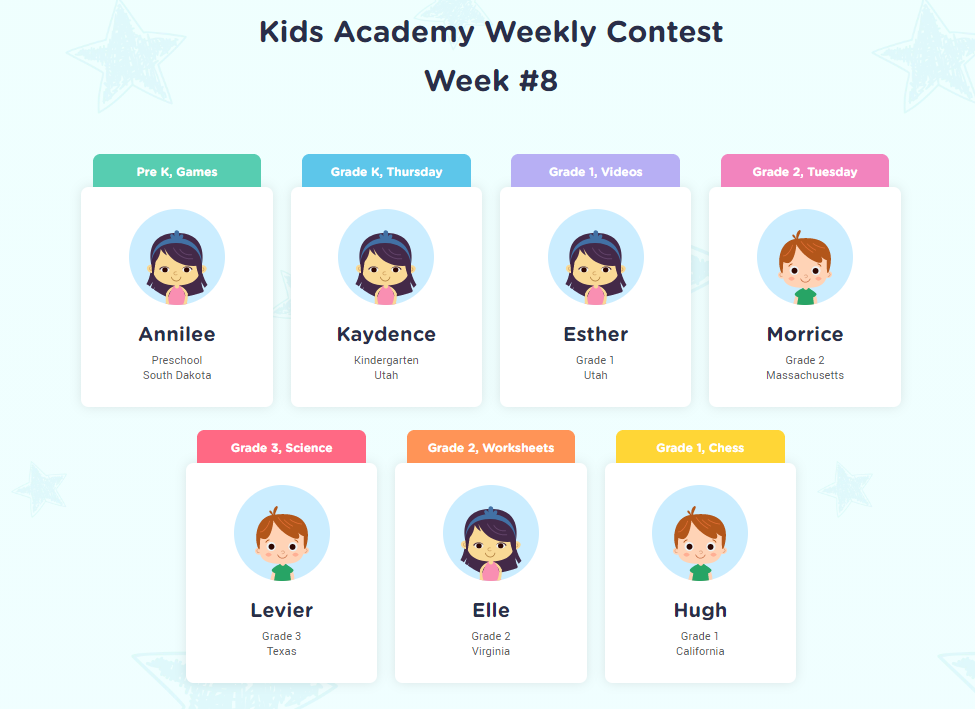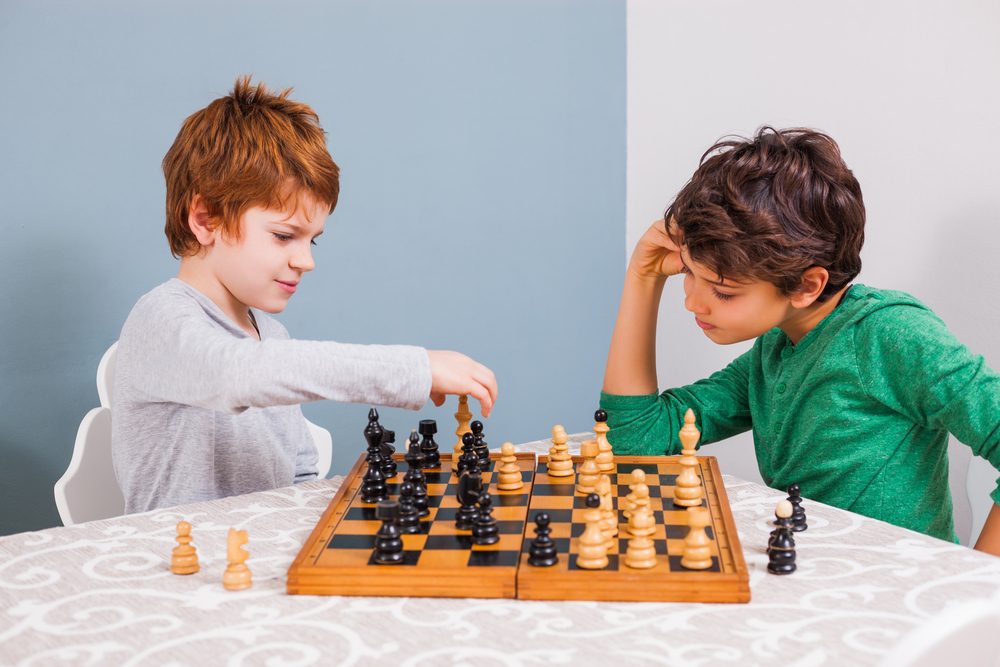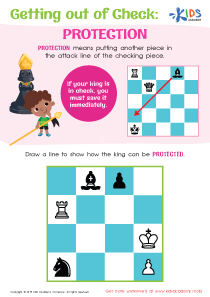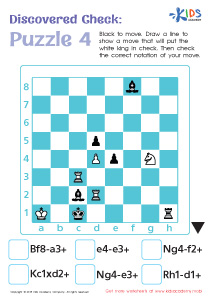Cognitive Development Chess Worksheets for Ages 6-7
5 filtered results
-
From - To
Boost your child's cognitive development with engaging chess worksheets specifically designed for ages 6-7! Our resources seamlessly blend fun and education, enhancing critical thinking, problem-solving skills, and spatial awareness through the timeless game of chess. These printable worksheets provide children with stimulating activities that challenge their minds while nurturing creativity and strategy formulation. Each worksheet is tailored to the developmental stage of young learners, ensuring that concepts are explored in a comprehensible and enjoyable manner. Introduce your child to the fascinating world of chess and watch them thrive academically and personally with our carefully crafted cognitive development worksheets!
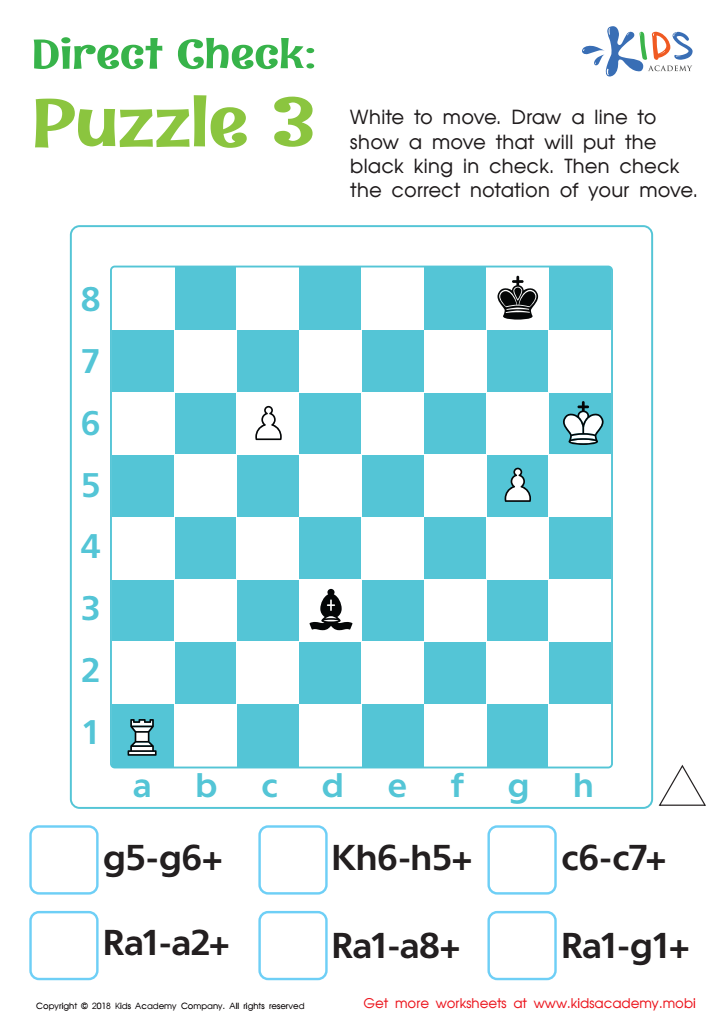

Direct Check: Puzzle 3 Worksheet
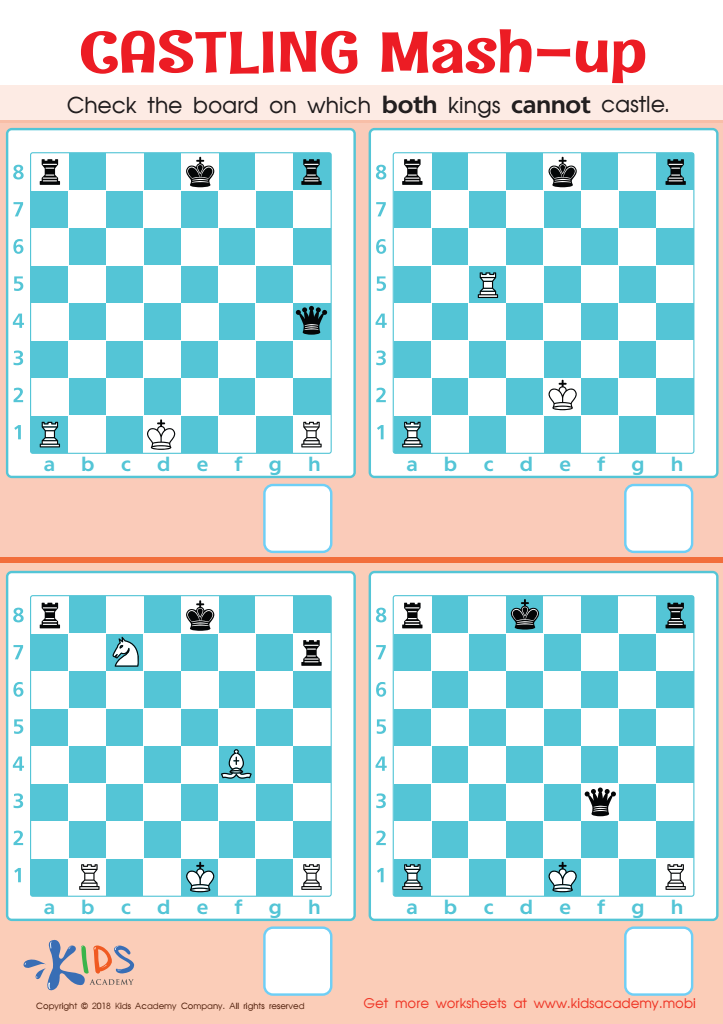

Castling Mash–up Worksheet
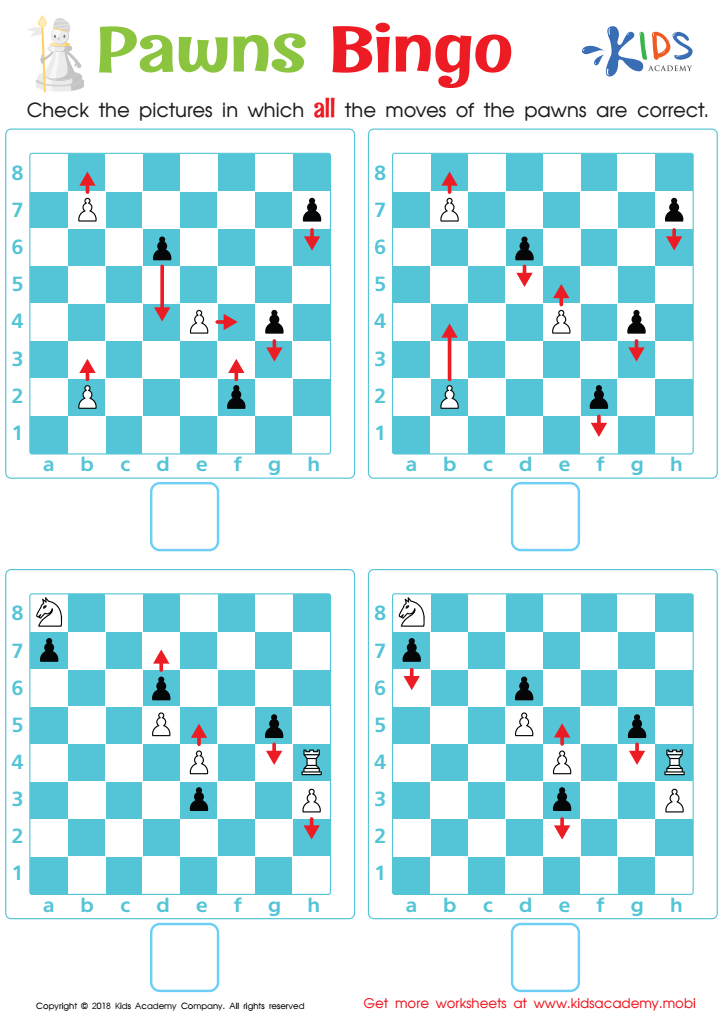

Pawns Bingo Worksheet
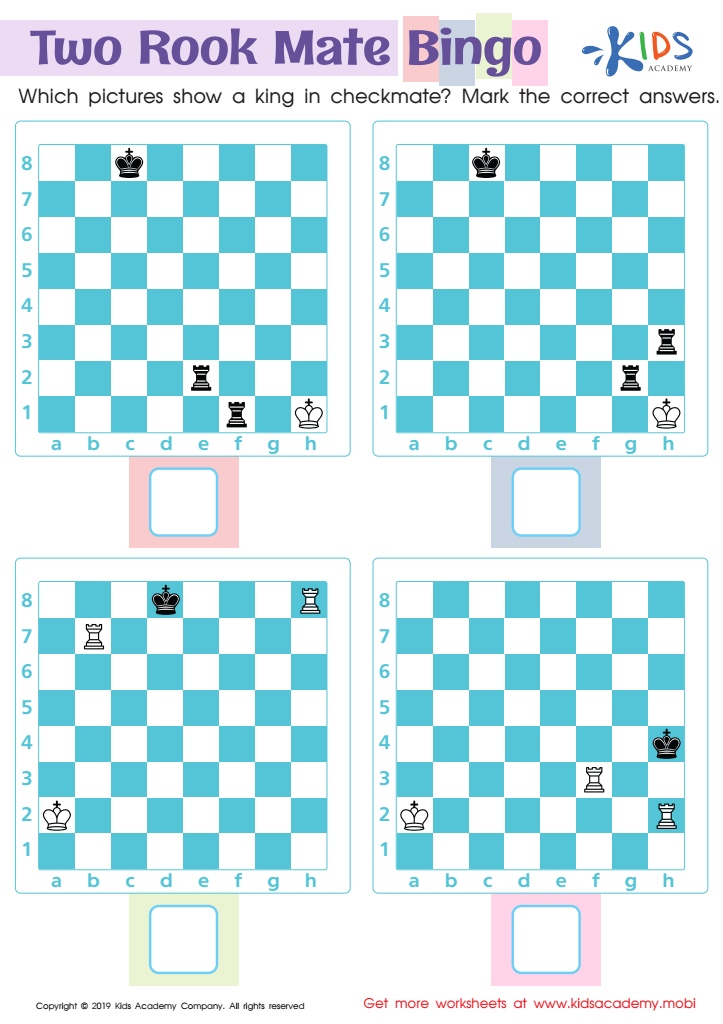

Two Rook Bingo Worksheet
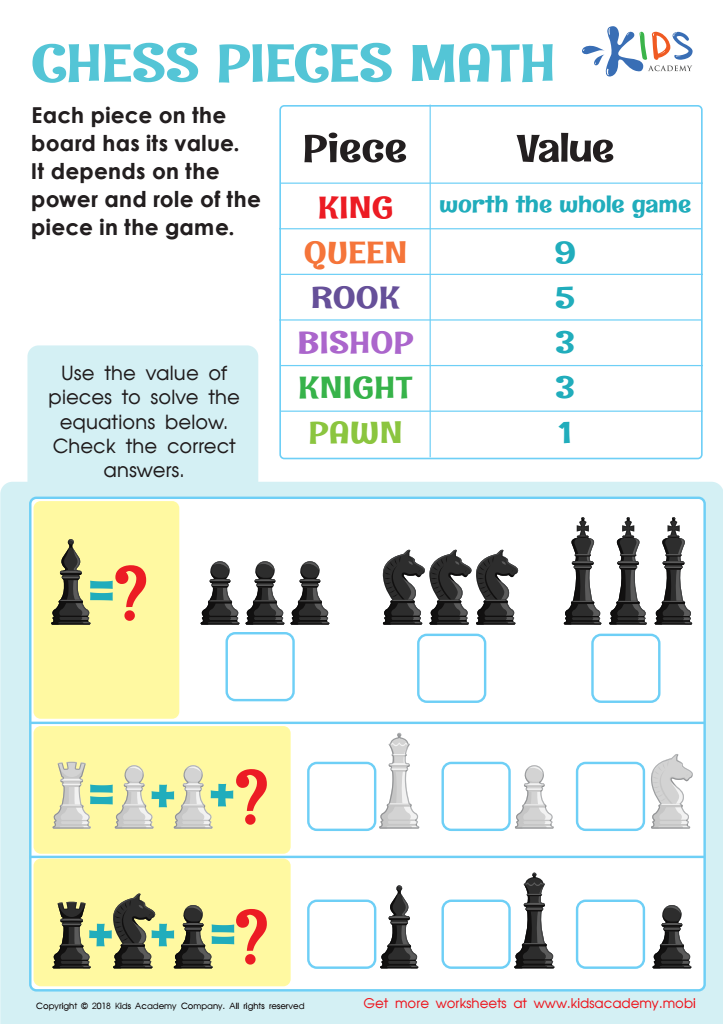

Chess Pieces Math Worksheet
Cognitive Development Chess for ages 6-7 is vital for young learners as it fosters critical thinking, problem-solving skills, and strategic planning. At this developmental stage, children's brains are highly receptive to new information, and engaging them in chess can harness this potential. By learning chess, children enhance their ability to visualize outcomes, think several moves ahead, and make decisions based on selective reasoning, all of which are essential skills not just in chess but across academic subjects and everyday life.
Moreover, chess promotes perseverance and patience, as young players navigate complex scenarios and learn from their mistakes, encouraging a growth mindset. The game's structured nature helps children develop attention span and focus, essential for academic success. It also offers a platform for social interaction, teaching children about sportsmanship, respect for their opponents, and collaboration.
For parents and teachers, incorporating chess into learning helps create a well-rounded educational experience. The cognitive benefits of chess translate to improved performance in subjects like mathematics and reading, making it an effective tool in fostering overall cognitive development. Ultimately, introducing chess at an early stage resonates well with children's natural curiosity, allowing them to explore intellectual challenges in a fun and engaging manner.

 Assign to My Students
Assign to My Students


